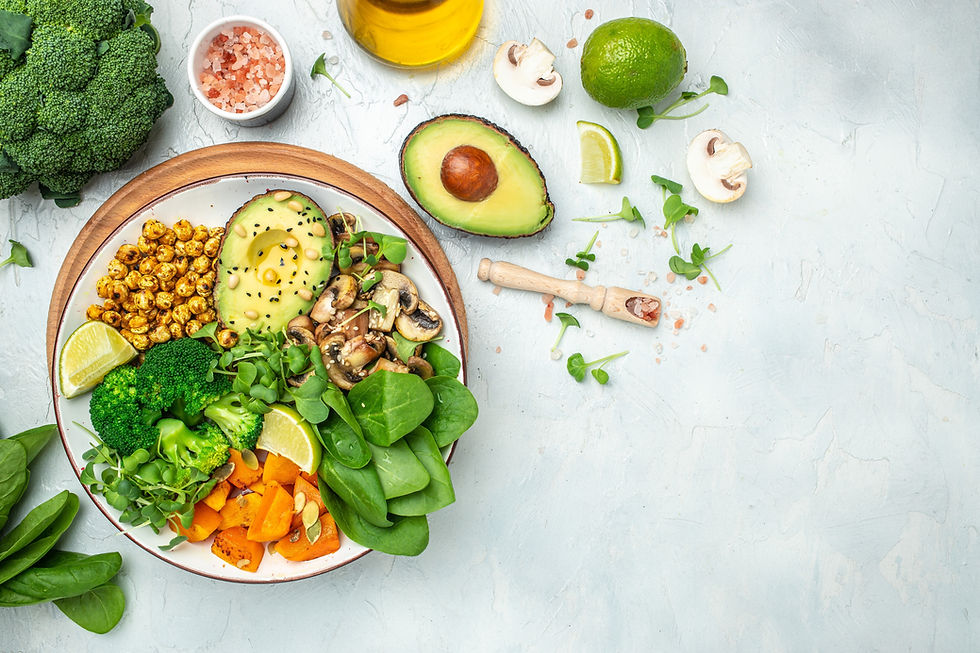How to Eat for Better Mineral Absorption: Unlocking the Power of Your Diet
- Sunny Health DPC

- Jul 25, 2025
- 3 min read
By Ga Geong Lee, MD Sunny Health DPC
You may be eating a healthy diet full of minerals, but are you absorbing them?
It’s a surprising truth in medicine: what you eat isn’t always what your body absorbs. Poor gut health, food choices, medications, or even meal timing can impact how well you take in essential minerals like calcium, magnesium, zinc, and iron.
Here’s how to eat smarter, not just for intake, but for uptake.
Why Mineral Absorption Matters
Essential minerals support nearly every body system:
• Calcium for bones and heart rhythm
• Magnesium for nerves, mood, and blood pressure
• Iron for oxygen delivery
• Zinc for immunity and skin
• Potassium for muscle and fluid balance

But deficiencies are common, even in people eating “healthy.”
Why? Because absorption is affected by:
• Gut inflammation (IBS, celiac, dysbiosis)
• Medications (PPIs, antacids, diuretics)
• Low stomach acid
• Poor nutrient pairing (like calcium + iron competing)
Let’s explore what helps, or hinders, mineral absorption.
6 Diet Strategies to Boost Mineral Absorption

1. Pair Iron with Vitamin C
Iron (especially from plant sources) is much better absorbed when paired with vitamin C.
Try this: Spinach + lemon juice, lentils + bell peppers, or fortified cereal + orange slices.
Why it works: Vitamin C converts iron into a more absorbable form.
2. Watch Calcium-Iron Timing
Taking calcium and iron together (from food or supplements) may reduce absorption of both.
Tip: Space out iron-rich and calcium-rich meals if you rely on supplements or fortified foods.
Example: Take your iron supplement in the morning and calcium in the evening.

3. Soak, Ferment, or Sprout Whole Grains & Legumes
These methods reduce phytates, natural compounds that bind to minerals like zinc, iron, and calcium.
Try this: Soaked oats, sprouted lentils, or sourdough bread instead of whole wheat sandwich bread.
Bonus: Fermentation also supports gut health, which boosts nutrient absorption long-term.
4. Eat More Healthy Fats (For Fat-Soluble Mineral Helpers)
Some minerals (like calcium and magnesium) are better absorbed when eaten with fats, especially in the presence of vitamin D.
Try this: Sardines (calcium + fat + vitamin D), or leafy greens with olive oil dressing.
Note: Vitamin D is critical for calcium absorption, so test and supplement if deficient.
5. Limit High-Oxalate Foods if Prone to Calcium Issues
Spinach, beets, and rhubarb are high in oxalates, which can bind calcium and reduce its absorption—especially if you have kidney stones or malabsorption issues.
Tip: Boil high-oxalate foods to reduce oxalate content or balance them with calcium-rich foods.

6. Support Gut Health
A healthy gut lining, diverse microbiome, and adequate stomach acid all play a key role in mineral absorption.
Focus on: Fermented foods (yogurt, kefir, kimchi), prebiotics (onions, garlic, bananas), and avoid excessive antacids or processed sugar.
Watch for: Long-term use of PPIs or antacids, which lower stomach acid and impair calcium, iron, and magnesium absorption.
Should You Test Your Levels?
If you have:
• Fatigue or brain fog
• Muscle cramps or palpitations
• Gut disorders or take long-term medications
• Poor wound healing or brittle nails
You may benefit from checking mineral levels and reviewing your digestion.
At Sunny Health DPC, we help patients optimize absorption, not just by prescribing supplements, but by adjusting how and what you eat. We believe nutrition is medicine when applied with intention.






Comments